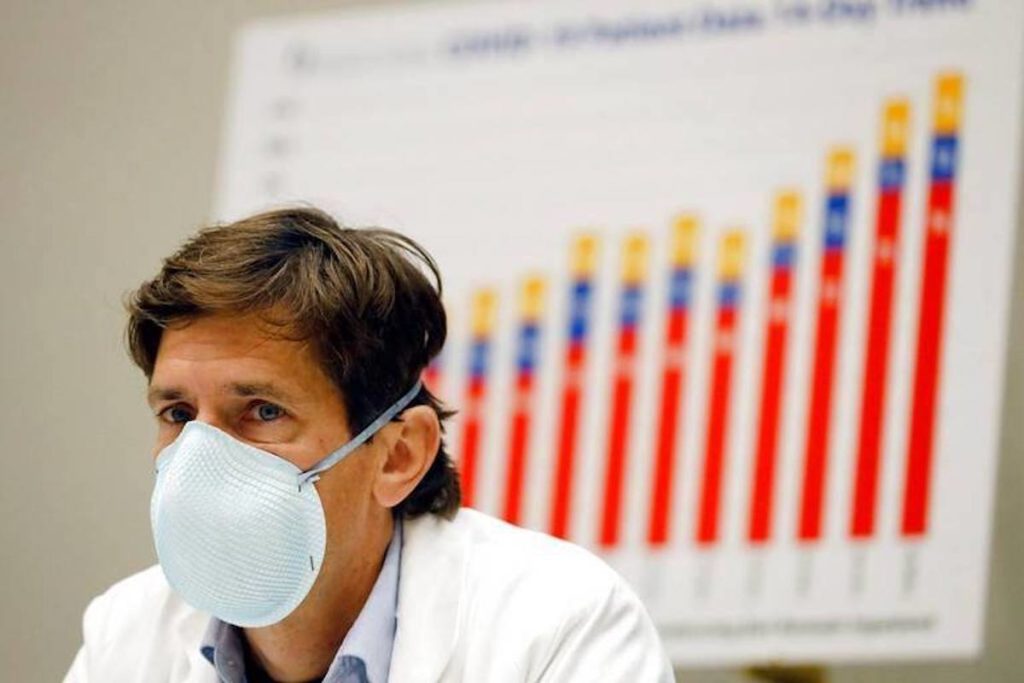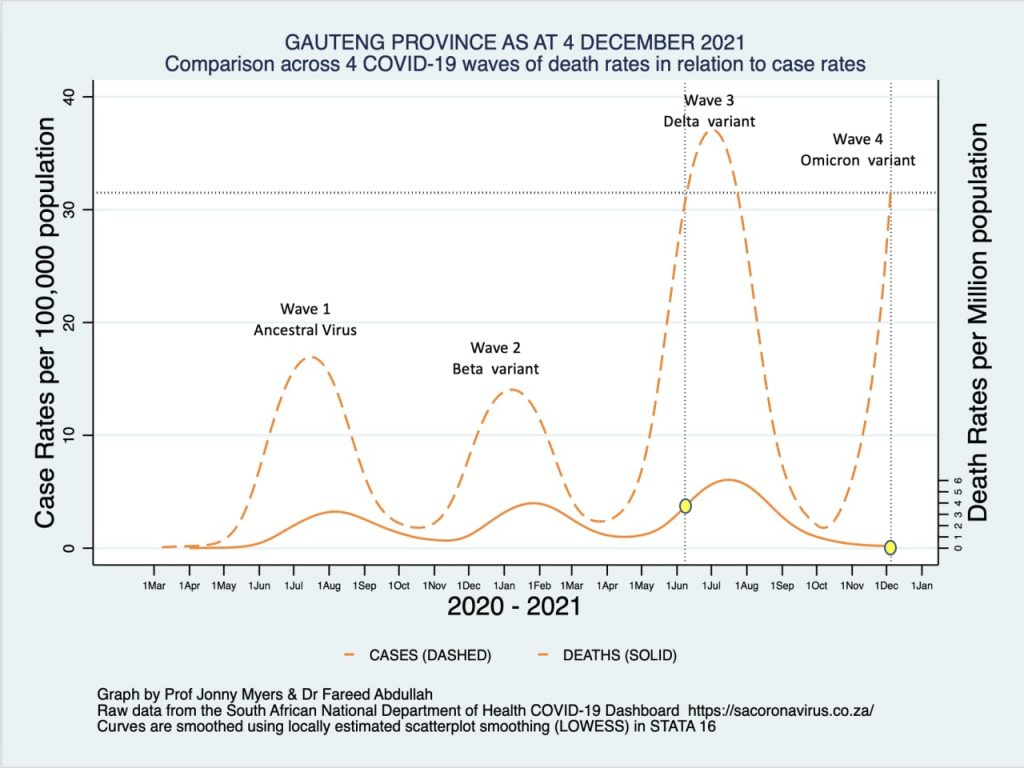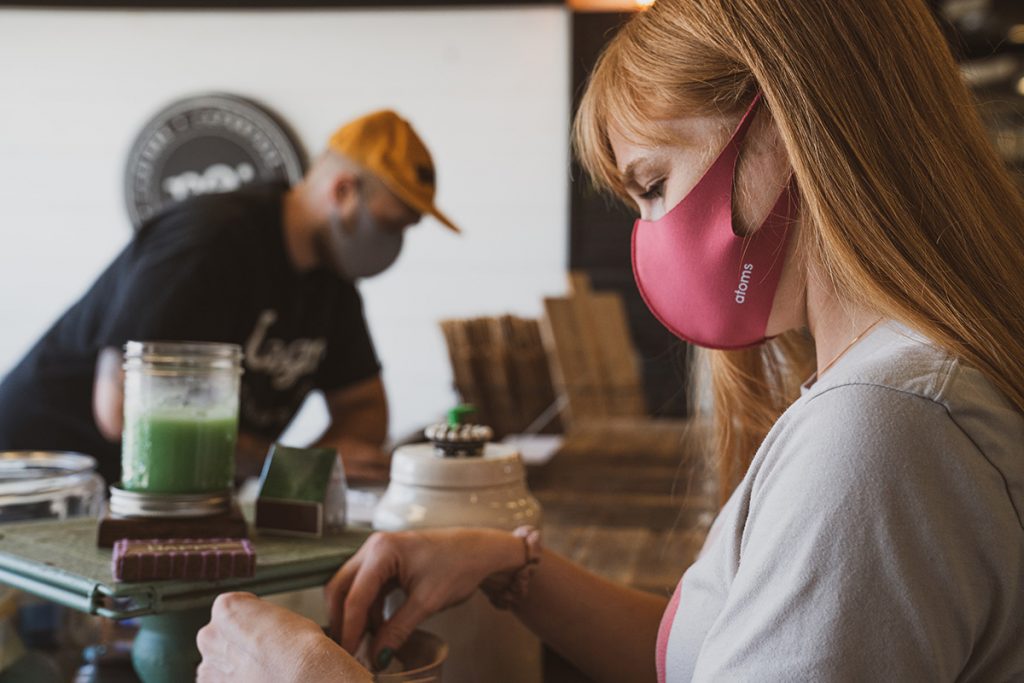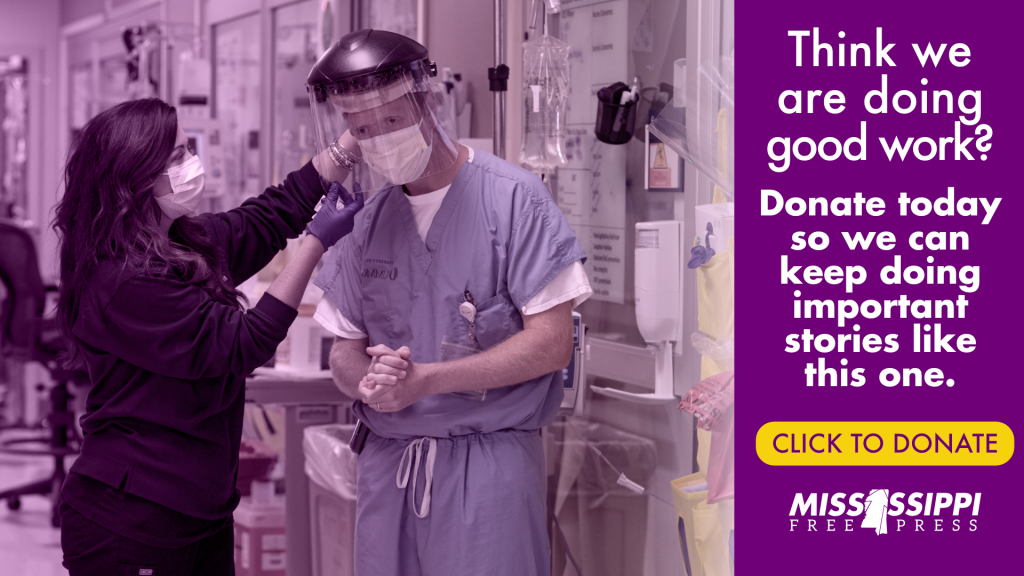The Mississippi State Department of Health has detected the first case of the omicron variant of COVID-19 in Mississippi. Health officials discovered the variant in a fully vaccinated individual who returned to Mississippi from New York, where earlier cases of the variant have been reported, but MSDH could not confirm where the infected individual acquired the virus.
In a statement, State Health Officer Thomas Dobbs highlighted the greater threat of delta to Mississippi and its hospital system at present. “We were prepared for the appearance of this variant in Mississippi, and we need to remember that Delta is still a very active variant of COVID-19 currently in the state, as well.”
Mississippi is now the 17th state to announce a detection of omicron, a variant that South African health officials first detected. Omicron is notable for its extreme number of mutations compared to the ancestral strain of coronavirus responsible for the pandemic. While its mutations make it a variant of concern, virologists have stressed that not every mutation inherently enhances the danger of the virus.

In particular, expert observers are concerned about the variant’s ability to evade antibody protection, generated through prior infection with earlier strains of COVID-19 or vaccination against the virus. Antibodies are the body’s first line of defense, providing resistance against symptomatic infection and transmission of COVID-19.
What little is known about Mississippi’s first case of omicron is that it is both a breakthrough case of the virus, having infected a fully vaccinated individual, but also that it is not a case severe enough to demand hospitalization.
Concern already exists over waning antibody protection from the vaccines, compounding worries that omicron may possess the ability to evade some prior antibodies. However, vaccines also provide more robust protection in the form of T-cells and B-cells, which offer longer lasting, more durable resistance against serious illness and death.
Just last week, COVID-19 expert Dr. Eric Topol told the Mississippi Free Press that his primary concern as it relates to omicron’s immunity evasion was not that it would invalidate vaccines, but rather that it may possess the ability to reinfect and seriously harm unvaccinated individuals who have already recovered from an earlier variant of the virus.
“Natural immunity, as it’s often referred to, which is a terrible term—natural immunity is not good enough to hold up to variants by itself. You’ve got to get at least one shot of vaccine and get the so-called hybrid immunity. … Hybrid immunity is better than multiple shots of vaccine,” Topol said.
While the arrival of omicron in Mississippi is notable, it does not guarantee the beginning of a new wave of COVID-19 hospitalizations and deaths. Data surrounding the infectivity and severity of the variant are still preliminary, but two unanswered questions remain.
The first is how infectious omicron will prove to be, especially in an environment with the presence of the extraordinarily infectious delta variant. If omicron proves to be closer to the original strain in terms of its infectivity, it is entirely possible that it will prove too weak to meaningfully compete with delta, experts say.
In the same interview, Topol highlighted the lesser-known beta variant, which dissipated in competition with the more infectious delta. “If it behaves like the beta variant, which faded away even though it had immune escape features, that would be great. That’s the hope right now,” Topol said.
The Omicron Wave?
Even if omicron proves suitably infectious to continue growing in a delta-rich environment, questions loom about the severity of the omicron variant, with some hopeful observers looking to the possibility that it could present a more mild version of COVID-19, less likely to hospitalize and kill. Some recent data, however, has diminished the likelihood of this hope.
Previously, the South African Medical Research Council released data from the Tshwane District Hospital Complex in Pretoria, South Africa’s executive capital. While the snapshot only covers 42 cases, medical analysis from the council depicts a meaningfully less severe disease than seen in previous waves.

“A snapshot of 42 patients in the ward on 2 December 2021 reveals that 29 (70%) are not oxygen dependent. These patients are saturating well on room air and do not present with any respiratory symptoms. These are the patients that we would call ‘incidental COVID admissions’, having had another medical or surgical reason for admission,” Dr. Fareed Abdullah of the council’s Office of AIDS and TB research wrote.
“The relatively low number of COVID-19 pneumonia hospitalizations in the general, high-care and ICU wards constitutes a very different picture compared to the beginning of previous waves,” Abdullah explained.

However, the overall picture of COVID-19 admissions in the hospitals in Gauteng is actively worsening, with visibly rising new hospitalizations week-over-week.
Continued surveillance of the shape of the omicron wave in South Africa is necessary for any concrete conclusions about the variant’s severity. “More time is required to fully answer the questions about the severity of COVID-19 caused by the new omicron variant,” Abdullah writes.










